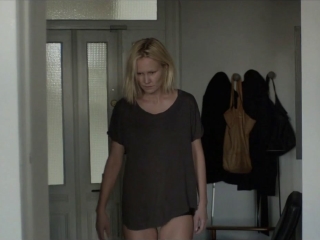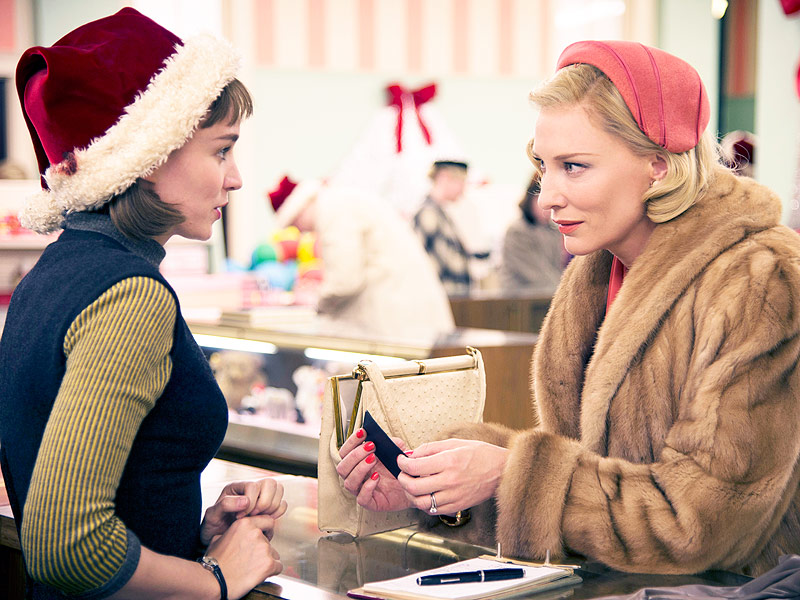Best Horror Film
For most people, this would be hands-down given to It Follows, which has an interesting premise, but, in my mind,
doesn’t end in an interesting way at all.
While What We Do in the Shadows
is certainly a contender, it works far better as a comedy instead of a horror. No,
this year the movie that truly frightened me wasn’t a fiction film at all, but
the documentary film The Nightmare. It describes the night terrors of a number of
people, who are scared horribly, but they cannot awake. While it is on the surface about the
condition called sleep paralysis, it draws us into the experiences of those who
suffer from it, helping us understand their nightmarish existence.
 |
| Nope. |
Best Award for Star Wars: The Force Awakens
Star Wars must be mentioned. Rebooting the series is an accomplishment, as
is topping the boxoffice the U.S. (even
though Avatar will retain the worldwide boxoffice). It was a good film, entertaining, and a fine
beginning to what I expect to be a good series of films. But it wasn’t great and there was nothing
remarkable and little original about it.
However, one aspect of the film deserves high praise: the hype that was
created before the film came out.
Advertisements, leaked “information”, stills, casting, all were
displayed with such skill as to play all the fan-boys and –girls with ultimate
finesse, stirring up excitement to a money-making frenzy. And so I award Star Wars: The Force Awakens with Best Marketing. Good job, folks.
Best Animated Film
I had much more anticipation of this category than realization. Studio Ghibli gave a lackluster showing with When Marnie Was There, Anomalisa was not as busy with ideas as
I expected a Charlie Kauffman film to be, Inside
Out was quite good, thoughtful, but didn’t stir my emotions despite the
subject matter. The only animated film
that gave me exactly what I was looking for was Minions, which allowed me some guilt-free chuckles on the level of juvenile
humor. But one film went beyond my
expectations and entertained me in a thoughtful way even while dissuading me
from hope for the future: World of
Tomorrow. Sixteen minutes of genius.
Best Hidden Twist
The Visit gave us a fine surprise
ending in the midst of a horde of movies that pretty much gave us what we
expected and wanted. But only one movie actually called us to a deeper look, to
put it in reverse to help us see the whole proceedings from a different angle,
only if we caught it. This is Gett, the Israeli film about an Orthodox
Jewish woman attempting to divorce her husband.
The final shot of the film gives us a strange view: a pair of calves in
sandals walking down the courtroom hallway.
Then we have to go back and look at the footware throughout the film,
which tells us a different story, an ancient story, the story of Tamar, a woman
seeking justice. I recommend watching
the film, and if you don’t get it, read my review.
Best Conclusion
This is a difficult category for I have two films that fight
in this context. First is Phoenix, a post-WWII drama about a
holocaust survivor, trying to find whether her husband loved her or not, which
concludes with a beautiful musical peace which gives a solid emotional determination. Second is Carol,
about a female couple who fall in love in the 50s, with brilliant bookends
which reflect but go beyond the bookends of David Lean’s Brief Encounter. Phoenix’s
conclusion is so memorable, but the film
as a whole is not, but I think this is because the nuances of the performances
are lost the first time it is viewed. I
will need to see it again to evaluate the film as a whole, but the final scene
is without peer. I will, however, give Carol my favorite film of the year,
exploring the romantic power and heartache of love with phenomenal performances
and brilliant direction by Todd Haynes.
Best Conclusion goes to Phoenix, but the big prize to Carol.
Most Laughs
It wasn’t a bad year for comedy. The raunchy comedy of the last decades seems
to be giving way to more mature bittersweet humor, which is a trend I
appreciate. Spy was a fantastic genre fest, giving a number of comedians the
opportunity to really show what they can do, especially Melissa McCarthy in a multiple-character
role. What We Do In the Shadows gave me a number of laughs, but I smiled
appreciatively more than chortled. Trainwrecked
might end up being my favorite comedy of the year (apart from the genius Netfix
series Unbreakable Kimmy Schmidt),
which introduced a different kind of comedy, teaching me to appreciate it by
the end of the film. But as much as I
laughed at those films, I’m pretty sure the movie I laughed at the most was The Martian, which I did not
expect. Matt Damon gave a brilliant
comedic performance and perhaps because I didn’t think of the film as a comedy,
it turned out to be the most entertaining film of the year for me.
Best Psychological
Thriller
Another tough run for me.
On the one hand, there is the Norwegian drama, Blind about a woman who
turned Blind and whose life is going on without her, outside the walls within
which she is isolated. The other is Ex
Machina, which is about the psychology of robots (?) and how they interact with
humans. The latter is the better film,
in which special effects, acting and plot fit together well. But there is more than meets the eye with
Blind, and I highly recommend this Hitchcockian-twisty film.
Best Action: Mad Max Fury Road. Duh.
Best Documentary: Amy, possibly the most emotional film of
the year for me
 |
| Drama around men at tables |
My top 15 of 2015 is:
1. Carol
2. Gett: The Trial of Viviane Ansalme
3. World of Tomorrow
4. Ex Machina
5. Mad Max: Fury Road
6. Amy
7. The Martian
8. Inside Out
9. Trainwreck
10. Spy
11. What We Do In the Shadows
12. Blind
13. Bridge of Spies
14. Avengers: Age of Ultron
15. Phoenix












